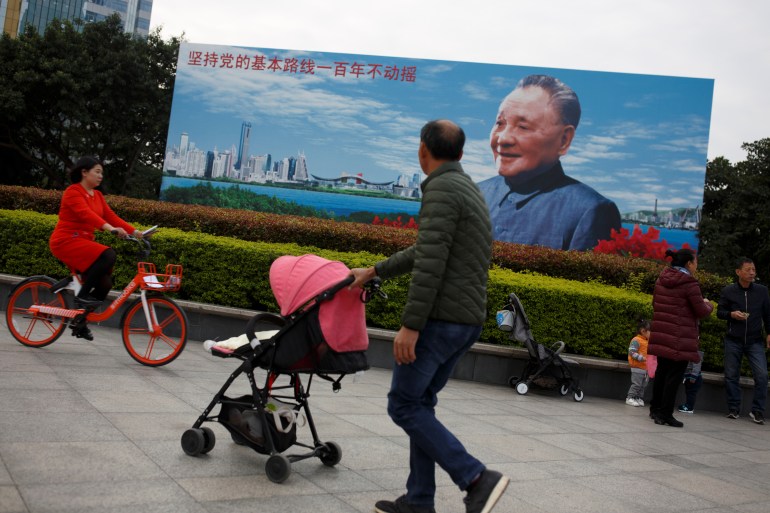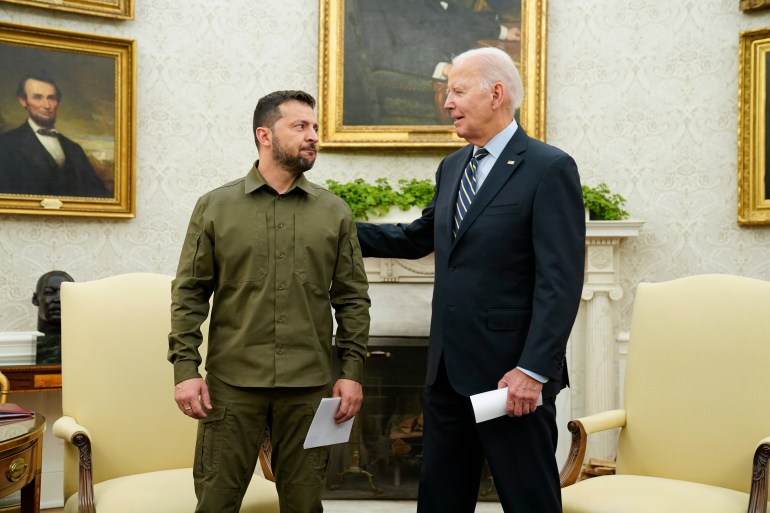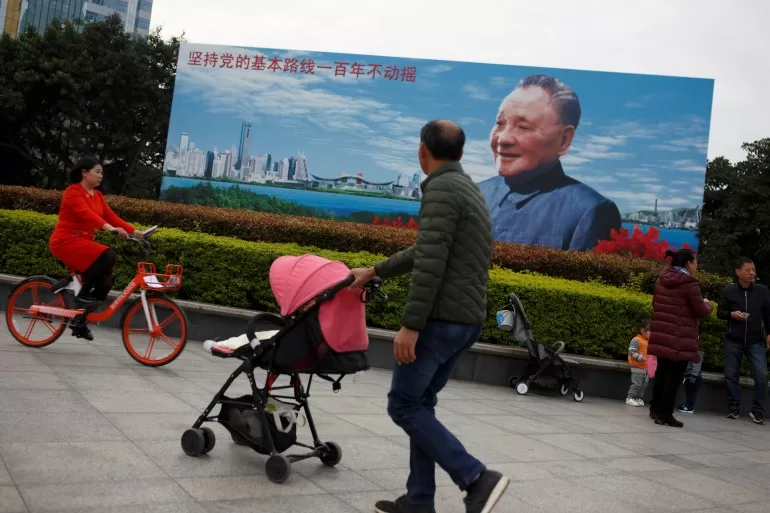Kuala Lumpur, Malaysia – It’s members of the United States Congress one day, a Hollywood star or wealthy donors another, all carrying the same message to President Joe Biden — that they want the 81-year-old to step aside from the 2024 presidential race.
Surveys show that many American voters are concerned about the advanced years and performance of Biden. Up against him is 78-year-old Donald Trump, barely younger, who survived an assassination attempt last week.
But age is no issue for Southeast Asia’s Malaysia which has seen its top politicians rise to power with popular support despite their very advanced years.
The clearest examples are Mahathir Mohamad, who became the country’s seventh prime minister at 92 years of age in 2018, and the incumbent, Anwar Ibrahim – Malaysia’s 10th premier, who took office in his mid-70s in 2022.
Malaysian voters who spoke to Al Jazeera said the policies of Mahathir and Anwar mattered more than their age when the country went to the polls.
“I did consider their age, Mahathir in particular, given he was already in his 90s by that point,” a 35-year-old business executive – who went by the name Layla Subra – told Al Jazeera.
“But in their case, both gave the impression that they’re pretty sharp and focused despite their age. So it didn’t strongly influence my voting decisions,” Subra said.
Mahathir – who had already served as Malaysia’s prime minister for a total of 22 years from 1981 to 2003 – earned a place in the Guinness World Records as the oldest serving prime minister when he was re-elected in 2018 aged 92 years and 141 days.
Though the official retirement age is 60 in Malaysia – a country of 34 million people where the median age is just more than 30 – advancing years are rarely seen as a factor for voters who have long grown used to the idea of elder lawmakers.
In China too, age is not seen as an impediment in politics.
Xi Jinping, who is now 71, secured his third five-year term as president last year, while the country’s then paramount leader Deng Xiaoping was 87 years old when he undertook his famed “southern tour” in 1992 aimed at economic reform following stagnation in the aftermath of the military crackdown on the Tiananmen protests in 1989.
Seen as his last, large-scale political initiative, Deng’s tour of key southern economic zones affirmed China’s commitment to free market liberalisation and opening of the Chinese economy to trade.

Never too old for Malaysian politics
It is not uncommon to see politicians contest elections to defend seats they have held for decades in the country’s parliamentary system.
Malaysia’s currently oldest member of parliament is Fong Kui Lun, 77, of the Democratic Action Party (DAP), who has held his seat since 1999.
While some voters told Al Jazeera they would like to see younger people in election lineups, they were more concerned with the policies of the day than with a candidate’s age.
“My priority would be for whoever has a better plan, not necessarily age,” said office manager Shaun Ho, 40.
“An older leader with a better plan would still be preferable to a younger leader who still follows the status quo,” Shaun said.
In the run-up to the 2018 election, Mahathir campaigned on a strong message of anticorruption against his former protege Najib Razak, who was later convicted for his role in the 1MDB financial scandal. Najib, the country’s sixth prime minister, was handed a 12-year jail term, though his sentence was halved early this year by the country’s pardons board.
Malaysians do not directly choose their heads of government, instead, they vote for candidates in their areas of residence, traditionally along party lines.
“Who the member of parliament is often doesn’t matter, because we basically are voting for the party we want in power for their policies,” businessman Nicholas Chin, 40, said.
“We are all consigned to vote strategically. That is to say, I will vote for the candidate I think will do the least harm,” Chin said.
Malaysia has had 10 prime ministers since its independence from British colonial rule in 1957, with its first four elected leaders aged in their late 40s to mid-50s.
But prime ministers have all shared similar traits. They have all been male, Muslim by faith, and have at one point been or were part of the United Malays National Organisation (UMNO), once the country’s biggest political party.
Health, not age, is the factor
Even in their advanced years, Mahathir, 99, and Anwar, 76, have in recent times appeared to have largely maintained their respective physical and mental health.
A medical doctor when he entered politics in the late 1950s, Mahathir told the AFP news agency in 2020 that he kept fit using both a treadmill and an exercise bicycle, with a disciplined diet in tow.
In February last year, Anwar said in a post on social media that he had gone for a medical checkup and the doctors had given him a clean bill of health.
That was despite a serious spinal injury and spending nearly a decade in prison after being jailed twice on charges of sodomy that were widely seen as politically motivated. His first conviction was overturned, and he received a pardon for the second.
In 2022, Mahathir suffered his worst political defeat at the national polls, which followed after he resigned as premier two years earlier and later formed a new party that focused on ethnic Malay voters.
Though facing a series of recent health problems and turning 99 earlier this month, Mahathir continues to pen public thoughts on politics. Currently in hospital again for medical treatment, he could not be reached for comment by Al Jazeera.
Bridget Welsh, a political analyst at the University of Nottingham Malaysia, said while a candidate’s age does matter for some voters, what matters more is a candidate’s competency and background.
“For the case of Mahathir, his health did not seem to be an issue but what emerged later was the perspective of ideas,” Welsh said.
“Age only tells part of the story … For the case of Joe Biden, it’s his health,” she said.
Calls for Biden to step aside from the presidential race have increased within his Democratic Party as he tested positive for COVID-19 last week on top of his numerous public gaffes over the years.
In one recent instance, Biden referred to Ukrainian President Volodymyr Zelenskyy as Russian President Vladimir Putin and has struggled to find the right words at other public appearances.

Following his disastrous televised public debate against Trump that left Democrats in a panic, more voices are wondering aloud if Biden should continue in the race, while Trump has been called out over his diatribes against minorities and migrants.
“I think the difference with our elections and the US one is that Biden and Trump are both physically and mentally unfit,” said 35-year-old Malaysian journalist Elza Irdalynna.
In the US’s deeply polarised climate, political personalities matter more than policies for the “average American” voter, Elza said.
“That’s why they need a popular figurehead to lead the race because that’s what’s visible,” she said.
“Even though they have better, younger candidates deserving of those seats,” she added.
